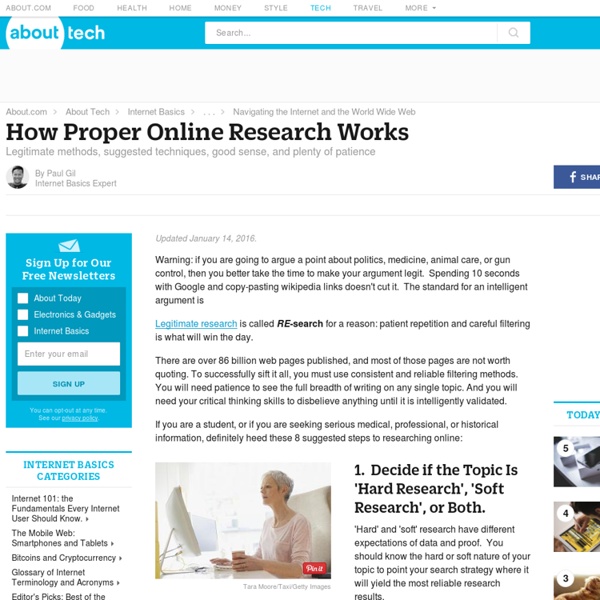Internet Search Tips and Strategies
.:VirtualSalt Robert Harris Version Date: July 6, 2000 Overview
The University of South Carolina Beaufort
So, you're still getting those 1,670,000+ responses to your search queries on the Web, and you're still too busy to do anything about it, like reading the lengthy, and sometimes confusing, "help" screens to find out how to improve your searching techniques. Look no further! Real help is here, in the USCB Library's BARE BONES Tutorial. You can zip through these lessons in no time, any time.
What Is Web 2.0
by Tim O'Reilly 09/30/2005 Oct. 2009: Tim O'Reilly and John Battelle answer the question of "What's next for Web 2.0?" in Web Squared: Web 2.0 Five Years On. The bursting of the dot-com bubble in the fall of 2001 marked a turning point for the web.
Social Networking
Networks get things done. Whether it's sending a letter or lighting your home. Networks make it happen. To get from Chicago to Santa Fe, we need to see the network of roads that will get us there. We see that Chicago is connected to St Louis, which is connected to Dallas, which is connected to Santa Fe.
10 Search Engines to Explore the Invisible Web - StumbleUpon
Not everything on the web will show up in a list of search results on Google or Bing; there are lots of places that their web crawlers cannot access. To explore the invisible web, you need to use specialist search engines. Here are our top 12 services to perform a deep internet search.
Deep Web
From Wikipedia, the free encyclopedia (Redirected from Deep Web) Deep Web may refer to:
Libraries of the future: Scenarios for 2050
Long-term Scenarios Scenarios are not predictions about the future; rather they describe possible futures. The workshops held to inform the Libraries of the Future project identified the critical factors that led to the highest impact on, and most uncertainty about, the future. These form the axes for scenarios: whether society and HE have open or closed values and whether HE provision is dominated by the state or by the market.
Online research methods
Online research methods (ORMs) are ways in which researchers can collect data via the internet. They are also referred to as Internet research,[1] Internet science[2] or iScience, or Web-based methods.[3] Many of these online research methods are related to existing research methodologies but re-invent and re-imagine them in the light of new technologies and conditions associated with the internet. The field is relatively new and evolving. With the growth of social medias a new level of complexity and opportunity has been created. Inclusion of social media research can provide unique insights into consumer and societal segments and gaining an "emotional" measure of a population on issues of interest.



